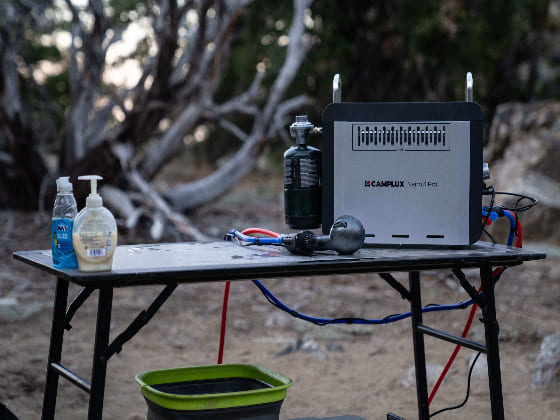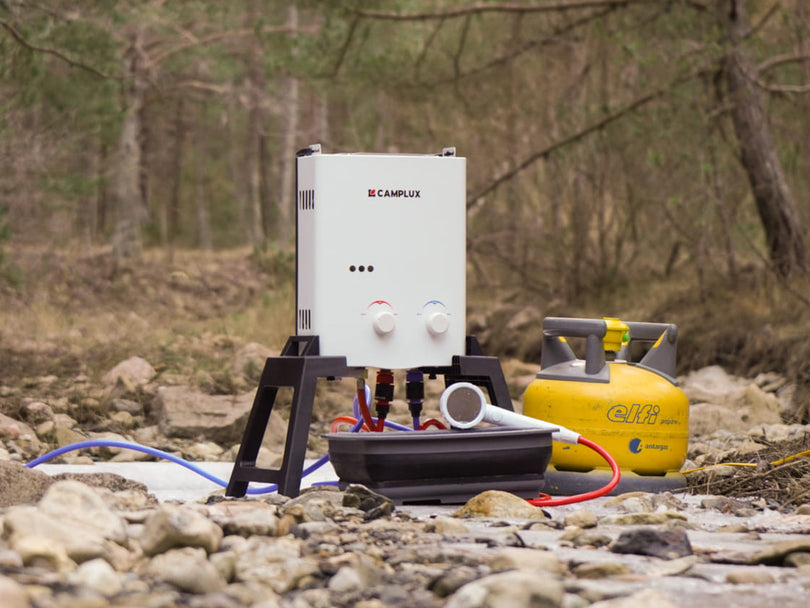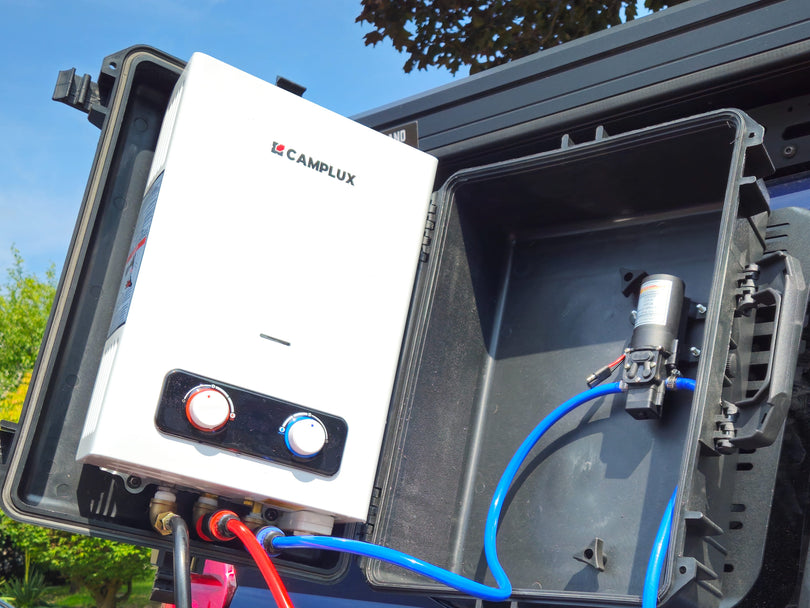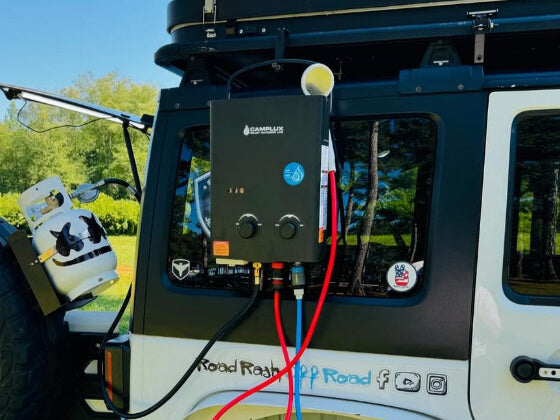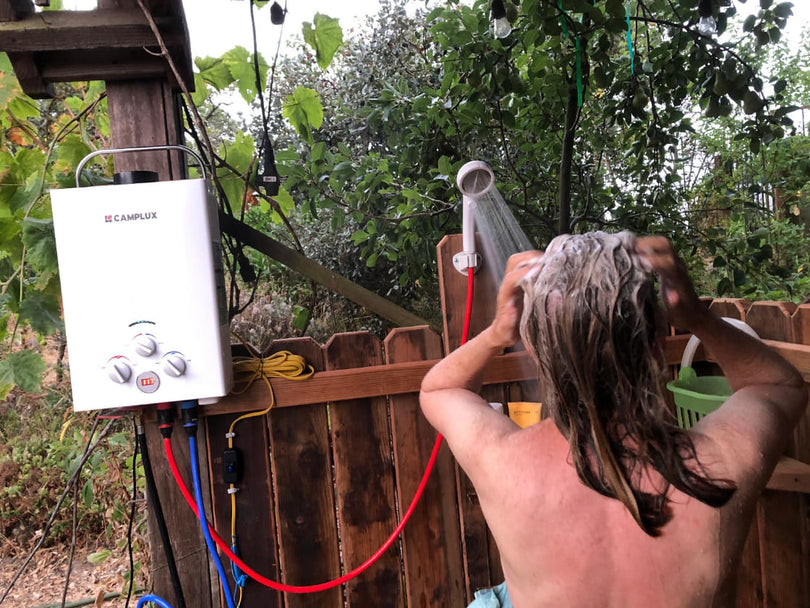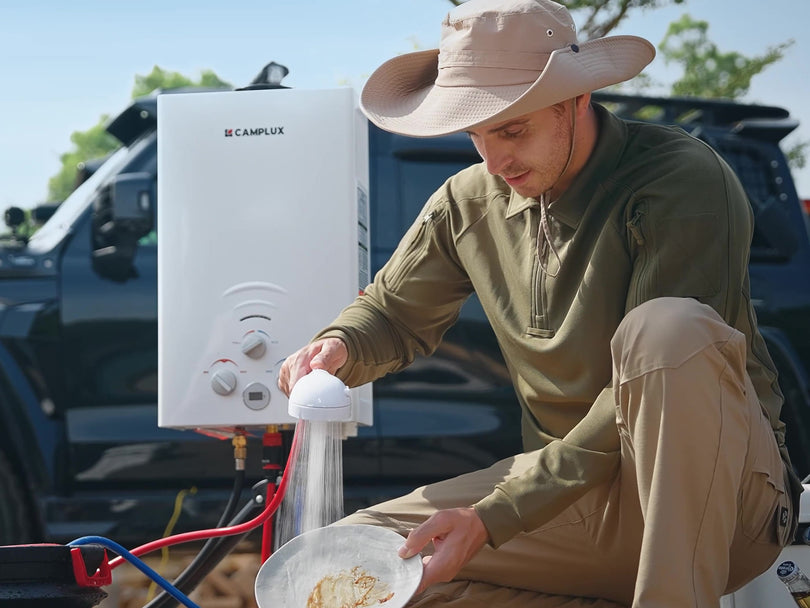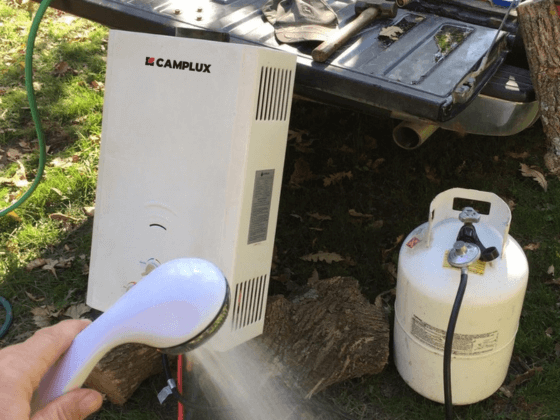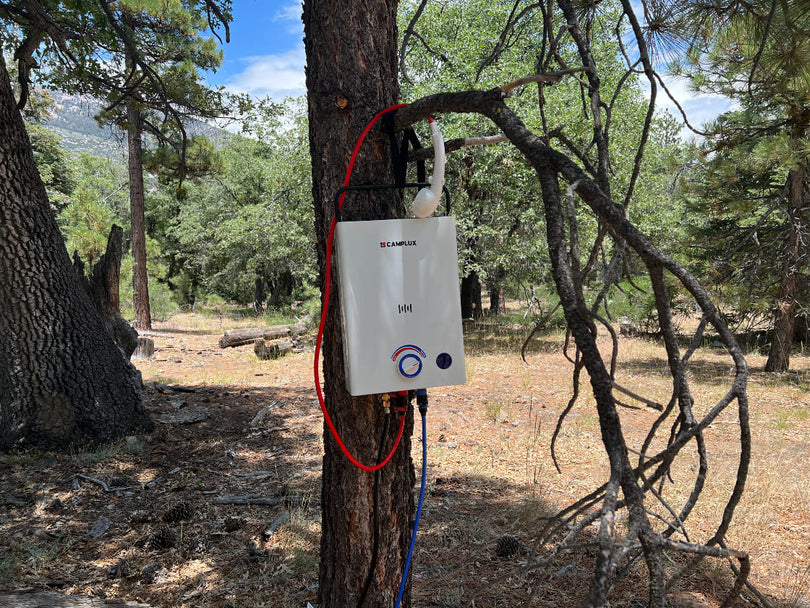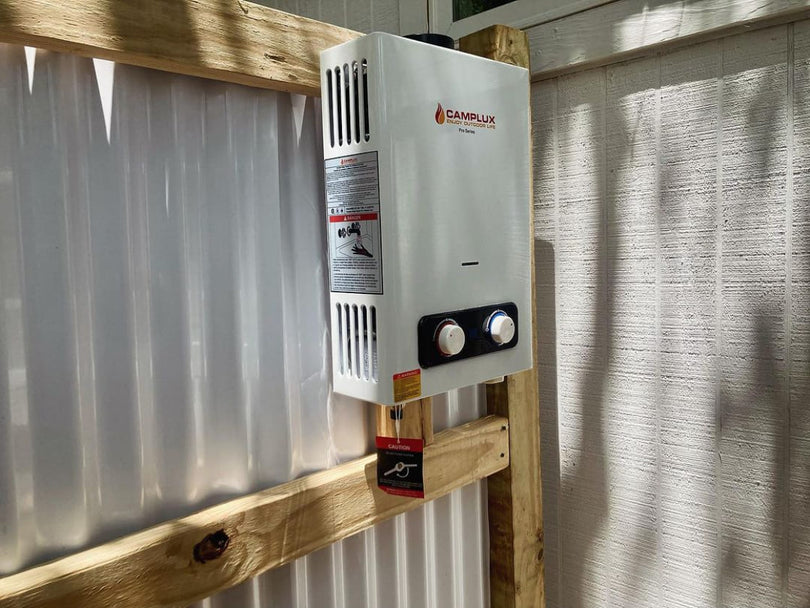Hey there! Thinking about getting a new gas water heater for your home? It's a big decision, and with so many options out there, it can get a bit overwhelming. But don't worry, I've got you covered. This guide is here to help you figure out what type of gas water heater suits your needs best. We'll talk about everything from the different types available to the key features you should look for. Plus, I'll throw in some tips on installation and maintenance, so you know what to expect after you buy. Let's dive into it and make sure you get the perfect heater for your home!
Key Takeaways
- Gas water heaters are more energy-efficient than electric ones, saving you money in the long run.
- There are different types of gas water heaters, like tankless and hybrid, each with its own pros and cons.
- Proper installation and regular maintenance can extend the life of your water heater.
- Consider your household's hot water needs and climate when choosing the right size and capacity.
- Look for heaters with safety features and digital controls for added convenience.
Understanding Gas Water Heater Types
Choosing the right gas water heater for your home can be a bit overwhelming, but understanding the different types available can make the decision easier. Let's dive into the three main types of gas water heaters: conventional storage tank heaters, tankless on-demand systems, and hybrid gas water heaters.
Conventional Storage Tank Heaters
These are the classic water heaters most people are familiar with. They consist of an insulated tank that stores heated water until you're ready to use it. Inside, a gas burner heats the water, and a thermostat regulates the temperature. Key components include an anode rod to prevent corrosion and a pressure relief valve for safety. The sizes range from 20 to 80 gallons, so you can pick one based on your household's needs.
Benefits:
- Continuous hot water supply, ideal for large families.
- Simple design, making them reliable and easy to maintain.
- Faster water recovery compared to electric models.
Tankless On-Demand Systems
If you're looking for something more energy-efficient, tankless water heaters might catch your interest. These systems heat water only when you need it, eliminating the need for a storage tank. This means you get an endless supply of hot water without the standby energy losses associated with traditional tanks.
Pros:
- Energy-efficient, as they only heat water when needed.
- Compact design, saving space in your home.
- Longer lifespan compared to conventional heaters.
Hybrid Gas Water Heaters
Hybrid gas water heaters combine the benefits of both tank and tankless systems. They often use a heat pump along with gas burners to heat the water, providing a balance between efficiency and performance. These systems are particularly good for those who want to reduce their carbon footprint while still having a reliable hot water source.
Hybrid systems offer a smart solution for eco-conscious homeowners, blending technology to achieve both efficiency and sustainability.
When selecting a gas water heater, consider factors like your household's hot water needs, space availability, and energy efficiency goals. With the right choice, you can enjoy hot water on demand while managing your energy costs effectively. For more on how new regulations might affect your choice, keep an eye on the latest updates from the Biden administration.
Key Features of Gas Water Heaters
Energy Efficiency Considerations
When picking a gas water heater, energy efficiency is a big deal. These heaters typically heat water faster than electric ones, which means less wait time for hot showers. But what's really cool is that they convert a higher percentage of fuel into heat, so you end up saving on those energy bills. If you're worried about the environment, gas heaters usually have a smaller carbon footprint compared to electric models. Just make sure to check the efficiency rating before buying.
Safety Features to Look For
Safety should always be on your mind when choosing a gas water heater. Look for features like automatic shutoff valves that kick in if something goes wrong. Pressure relief valves are also important—they let out extra pressure so things don't get dangerous. Some models even have corrosion-resistant materials to keep the tank in good shape for longer. These features not only keep your home safe but also extend the life of your heater.
Digital Control Options
Modern gas water heaters come with digital controls that make life a lot easier. You can set the exact temperature you want, and some models even let you schedule heating times. This means you can have hot water ready when you need it, without wasting energy. Digital controls also often include diagnostic features, so you can troubleshoot any issues before they become big problems.
Gas water heaters are not just about heating water; they're about doing it efficiently and safely. With the right features, you can enjoy hot showers without worrying about high energy bills or safety risks.
When you're out shopping, keep these features in mind to make a smart choice for your home. And remember, a new rule from the Biden administration might change some of these options, so stay updated on any regulations impacting gas water heaters.
Installation and Maintenance Essentials
Professional Installation Benefits
When it comes to setting up a gas water heater, getting a pro involved is a smart move. Professionals ensure everything's safe and efficient. They know how to handle gas lines and venting requirements, which is not something you want to mess around with. Plus, they make sure everything's up to code, which means fewer headaches down the road. If you're thinking about doing it yourself, check out a step-by-step guide to see what's involved.
Routine Maintenance Tips
Keeping your gas water heater in top shape isn't as hard as it sounds. Here are a few things you can do:
- Flush the Tank Annually: Sediment can build up in the tank, reducing efficiency. Flushing it out helps keep things running smoothly.
- Inspect the Anode Rod: This little guy prevents rust inside the tank. Check it every couple of years and replace it if it's looking rough.
- Test the Pressure Relief Valve: This valve is crucial for safety. Make sure it's working properly to avoid any nasty surprises.
Troubleshooting Common Issues
Even with regular maintenance, things can go wrong. Here are a couple of common problems and what you can do:
- Pilot Light Won't Stay Lit: Check the thermocouple; it might need replacing. Also, make sure there's no dust blocking the pilot orifice.
- No Hot Water: This could be due to a faulty thermostat or heating element. A quick check can save you from a cold shower.
- Strange Noises: If your heater's making weird noises, it might be time to flush the tank or check for loose parts.
Regular maintenance not only keeps your heater running efficiently but also extends its lifespan, saving you money in the long run. Don't wait until something breaks—being proactive can prevent costly repairs.
Comparing Gas Water Heaters to Other Types
When it comes to picking a water heater, the choice often boils down to gas or electric. Gas water heaters are generally more energy-efficient, which means they can save you money in the long run, especially if natural gas is cheaper than electricity in your area. They heat water quickly and keep it hot, so you’re less likely to run out during a long shower. On the flip side, electric water heaters, like hot water tanks, are easier to install and maintain since they don't need venting. They also tend to have a lower upfront cost. But, if you’re in a place where electricity rates are high, the operational costs can add up.
Advantages Over Heat Pump Systems
Gas water heaters have the edge over heat pump systems in terms of initial cost and installation complexity. Heat pumps are super energy-efficient, using electricity to transfer heat from the air or ground, but they’re pricier upfront and need more space. Gas units, meanwhile, are straightforward and compact, fitting into smaller areas. They’re also better in colder climates since heat pumps can struggle when the temperature drops.
Cost Comparison with Solar Heaters
Solar heaters are all about sustainability, using the sun’s energy to heat water. They’re the greenest option, but the initial investment can be steep. Plus, they depend on sunny weather, so they might not be practical everywhere. Gas water heaters, while not as eco-friendly, are more reliable and less expensive to set up. They offer a consistent hot water supply regardless of the weather, making them a solid choice for those who prioritize dependability over environmental impact.
Choosing the right water heater means weighing the pros and cons of each type against your household needs and budget. Gas heaters offer a balance of efficiency and cost-effectiveness, but it’s essential to consider your local energy prices and environmental goals.
Choosing the Right Size and Capacity
Assessing Household Hot Water Needs
Choosing the right size for your gas water heater begins with understanding your household's hot water needs. Consider the number of people in your home and their daily routines. For instance, a family of four with multiple showers, dishwashing, and laundry loads will need more capacity than a couple living in a small apartment. It's all about matching your water heater's output with your peak usage times.
For tankless models, look at the flow rate, measured in gallons per minute (GPM). This tells you how much hot water the unit can deliver at once. Efficiency is key, so ensure your choice can handle simultaneous demands.
Impact of Climate on Heater Performance
Climate can influence how your gas water heater performs. In colder areas, heaters work harder to warm incoming water, potentially increasing energy use. On the flip side, in warmer climates, your heater might not have to work as hard, leading to energy savings. Consider this when choosing your heater's capacity, as it might need to be adjusted based on your local weather conditions.
Selecting the right size and capacity for your water heater isn't just about meeting today's needs; it's about anticipating tomorrow's demands. Think about any future changes in your household, like a growing family or new appliances, that could affect your hot water usage.
Environmental and Economic Benefits
Reducing Carbon Footprint
Switching to a gas water heater can significantly lower your household's carbon emissions compared to electric heaters. Gas heaters are more efficient in converting energy into heat, which means less energy is wasted. By choosing a model with a high-efficiency rating, you can further minimize your environmental impact. Consider models that comply with environmental standards and have low emissions to ensure you're making a sustainable choice.
Long-Term Cost Savings
Investing in a gas water heater might seem pricey upfront, but the long-term savings can be substantial. Gas heaters generally have lower operating costs compared to electric models, meaning you'll see a reduction in your monthly utility bills. Over time, these savings can offset the initial investment, making gas heaters a cost-effective option.
Making an Informed Purchase Decision
Reading Reviews and Ratings
Before you buy a gas water heater, take some time to read through customer reviews and ratings. These can give you a real sense of how a product performs in everyday use. Look for patterns in the feedback. If multiple people mention a specific issue, it might be something to consider. Don't just focus on the star ratings; read the comments to understand the context behind the scores.
Consulting with Plumbing Experts
Talking to a plumbing expert can be invaluable. They can offer insights into which models are most reliable and efficient. Experts can also help you understand installation requirements and potential pitfalls. When you consult with a pro, you’re not just getting an opinion; you’re getting years of experience. They might even suggest models you hadn't considered.
Warranty and Service Considerations
Check what kind of warranty comes with the water heater. A good warranty can save you a lot of trouble down the line. Look for comprehensive coverage that includes both parts and labor. It's also worth considering the level of customer service provided by the manufacturer. A company with a reputation for good service can make a big difference if you run into issues.
Making an informed decision isn't just about finding the right product; it's about ensuring peace of mind for the years to come.
Wrapping It Up: Making the Right Choice for Your Home
So, there you have it. Picking the right gas water heater isn't just about grabbing the first one you see. It's about understanding what fits your home and lifestyle. Whether you're all about saving on those energy bills or you just want a steady stream of hot water, there's a heater out there for you. Remember, it's not just about the upfront cost—think about the long-term savings and efficiency. And hey, if you're still scratching your head, don't hesitate to call in a pro. They'll help you figure out what works best for your setup. Happy heating!
Frequently Asked Questions
How does a gas water heater work?
A gas water heater uses natural gas or propane to heat water. The gas is burned in a special burner, and the heat is transferred to the water stored in a tank or flowing through a pipe, depending on the type.
What are the main types of gas water heaters?
The main types of gas water heaters include conventional storage tank heaters, tankless on-demand systems, and hybrid heaters that combine features of both.
How often should I maintain my gas water heater?
It's a good idea to check your gas water heater at least once a year. This includes inspecting for leaks, flushing out sediment, and checking the burner and venting system.
Are gas water heaters energy efficient?
Yes, gas water heaters are generally more energy-efficient than electric ones. They heat water faster and can save on energy bills, especially if natural gas prices are low in your area.
What size gas water heater do I need for my home?
The size of the gas water heater depends on your household's hot water needs. Consider the number of people in your home and the peak times when hot water is used the most.
Can I install a gas water heater myself?
It's recommended to have a professional install your gas water heater. They ensure it's set up safely and correctly, which can prevent accidents and improve efficiency.

